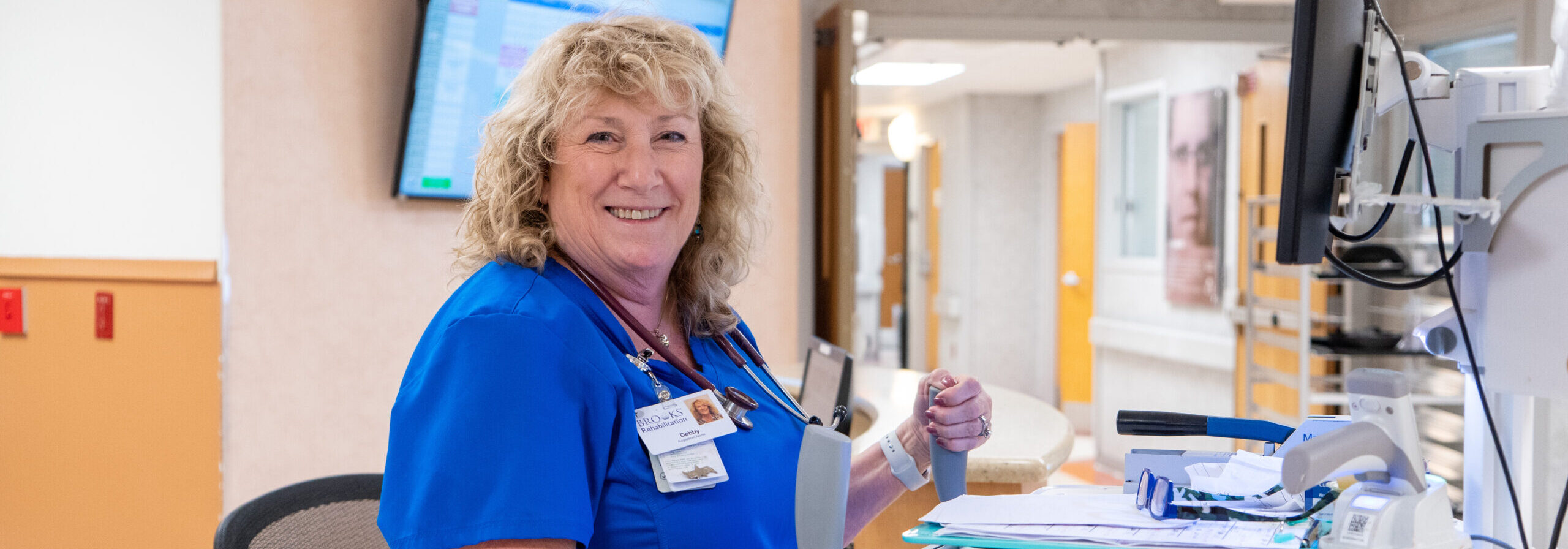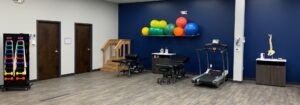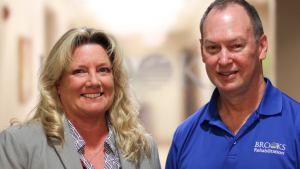Tips for Landing Your First Nursing Job

Back to physical health resource hub
There has never been a better time to enter the profession of nursing. Career paths and opportunities are numerous in healthcare for nurses who are motivated to hone their skills and practice at the top of their license.
Below are some tips for finding, applying and landing your first job as a nurse.
Think about what area of practice seems to be of MOST interest to you
Nurses work in many areas and in many roles. Think about what your clinical (simulated and non-simulated) experiences were in your nursing program. Which area did you really like? Which area do you wish you had gotten more exposure to? Research what is unique to each practice area. Where do you see a match with your values, beliefs and knowledge?
Post-acute nursing is a specialty practice area that provides care for patients who may need more time and special interventions to help them regain a level or wellness.
In acute care settings, such as in a hospital, patients rely on the nursing care team to help them recover form an acute medical or surgical issue. Generally each patient only stays a few days in the hospital and the nurse has a limited amount of time to develop that therapeutic relationship. The team typically consists of medical staff, nursing staff and select ancillary staff.
Rehabilitation Hospitals, Skilled Nursing and Long-Term Care Facilities offer the nurse much more time to spend with the patient and family. These patients need extra time as they begin their journey toward recovery, and the nurse has a tremendous opportunity to work in a variety of roles. Post-acute nurses are advocates, educators, wound care nurses, case managers and team leaders. Working in this practice setting is a true interdisciplinary team setting.
Target your job search
Narrow the types of nursing positions you are seeking, and think about what you will be most satisfied and successful in. Be sure to consider distance, shift requirements and again practice settings. Think about what is your ideal job, and then consider what you would think will offer you the best “transition into practice“ opportunity. Review the job postings, and be sure to look for key points- such as transition to practice or residency programs, star ratings and Magnet Designation.
Be confident- It’s about getting experience
Starting a new job always has some level of anxiety associated with it. It’s normal to feel stressed. Be reassured that while everyone wants “experience,” you can have different types of “life experiences” that would demonstrate to an employer your skills and abilities, some of which are softer, non-technical skills. You’ve gone through some tough years learning how to be a nurse, and passing the licensure board examination is a feat in itself. Be confident in yourself. Everyone starts as a “new nurse.” You might find a wealth of experience in a setting you may not have thought of. For example, working in a skilled nursing subacute unit is a wonderful place to learn basic nursing interventions as well as begin to get your arms around time management, assessment and care planning. Rehabilitation Hospitals have medical surgical level patients that are also exciting places to also develop assessment, care planning, critical thinking and time management skills, many of these patient have high level med- surge needs such as IV therapy, wound care needs, tracheostomies and even ventilators.
Address any barriers
Once you apply for a position, be sure to identify what would be any barrier or challenge. Will you have adequate coverage for any child care needs, what about transportation? Create back up plans that would help to make the transition to practice go smoothly. Develop your support network that will help you during these first few months when perhaps the new job may seem a little overwhelming.
Nail the interview
The interview is your time to shine. Be punctual, dress professionally. This isn’t the time to dress for a date or a trip to the beach. Be sure to convey your reason for starting a career in nursing, and talk about the life experiences you have had that will help you to become a great nurse. Be sure to listen to the questions asked and formulate your answer in your in before you just jump in with a response. Ensure you actually answer what is being asked- clarify the questions if you need more color around a particular question. You are interviewing for a job where you will be responsible for the care of others. Shine!


